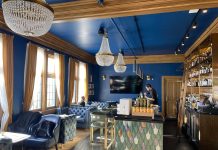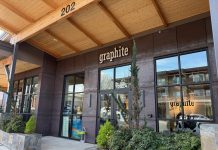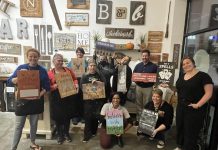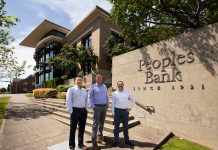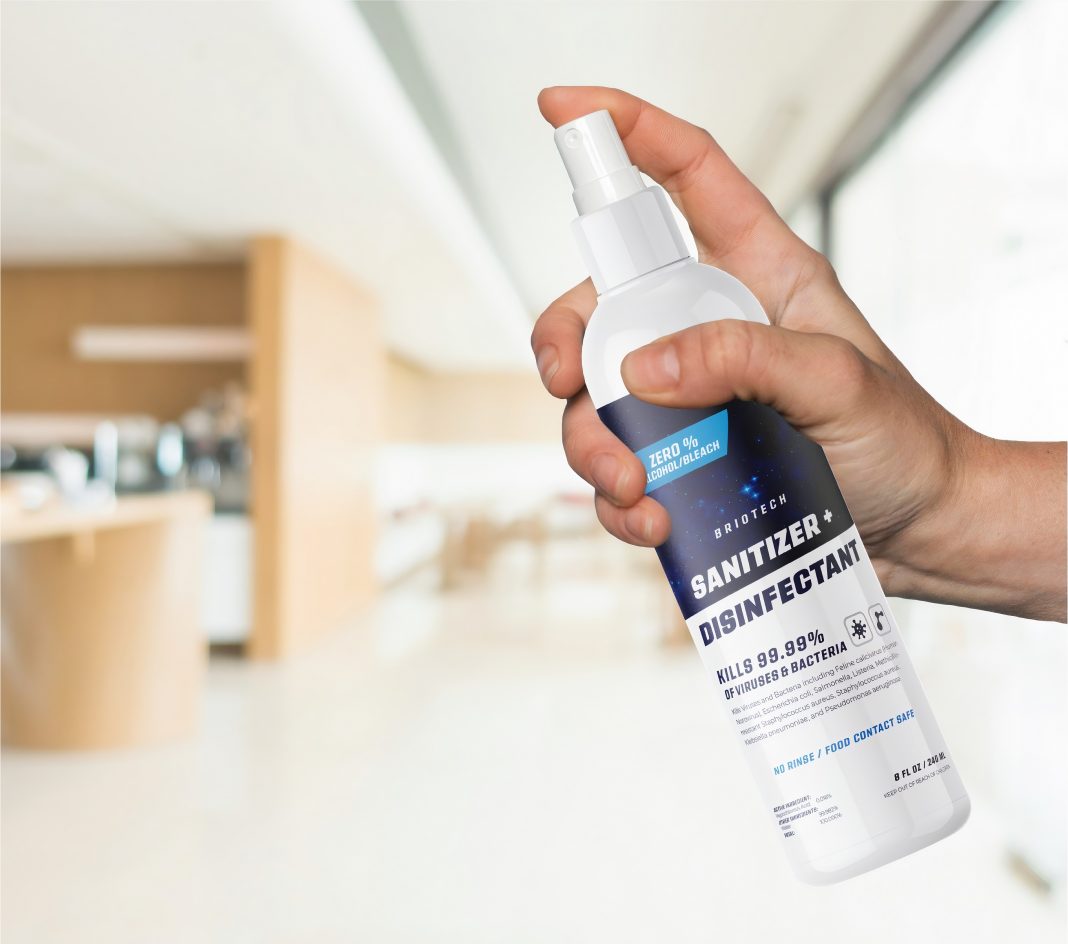Over the long months of COVID-19, we’ve been subjected to chemistry and biology refreshers every time we turn on the news. We’re a living experiment in sanitizer, aerosolized particles and droplets, vaccines and variants; and what we are finding is that increased use of heavy-duty cleaning products for preventive disinfection measures, often does more harm than good. Our reliance on antibiotics and heavily prescribed medicines can work to create superbugs that are immune to standard treatments, and with more and more evidence of this daily, we must work in earnest to combat antimicrobial resistance.
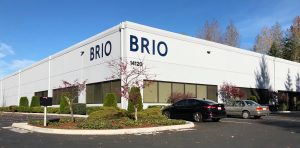
Local company, Briotech, Inc., has developed a line of cleaning products, Briotech Sanitizer + Disinfectant, based on their unique hypochlorous acid (HOCl). Eric Rasmussen, MD, MDM, FACP, and chief medical officer of Briotech explains, “We have all benefited from two medical discoveries that protect us from infections: antibiotics and antiseptics. Antibiotics are substances that kill or inhibit reproduction in microbes that threaten us. They’re usually generated by other organisms (like penicillin extracted from mold) or synthesized to mimic a biological process lethal to bacteria. In contrast, an antiseptic is usually a chemical like alcohol, or a compound like povidone-iodine, used on the surface of our bodies. That surface can be our skin, our eyes, or as an oral rinse after brushing our teeth.”
He warns, however, that times are changing. “Antibiotics were a wonderful discovery a century ago, but the antibiotic era is ending rapidly,” admits Rasmussen. “Every class of antibiotic has generated human pathogens resistant to their effects, and we’ll soon be returning to a time when scratches and scrapes that have been trivial to heal with topical or intravenous antibiotics will again gain the capacity to kill. Since the start of this century there have been more than half a million professional articles published on antibiotic resistance and yet the problem is not getting better. We’re also watching as antiseptics approved decades ago generate both skin damage and resistance in the dangerous bacteria they’re supposed to kill.”
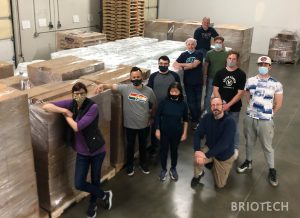
Briotech founder, Dan Terry, also acknowledges the issue. “Healthcare is in a global crisis,” he says. “Superbugs, hospital-acquired infections, non-healing wounds, rising costs, pandemics—the stories are headlined daily as reminders that we’re living in the final glory days of antibiotics where for only a while longer a bout of pink eye or an infection is nothing more than an inconvenience.”
This doesn’t mean we should lose hope. While there have been tremendous scientific advancements, sometimes the tried-and-true solutions are best. “Fortunately, it’s not difficult to avoid the dangers of disinfectant exposure or the risk of increasing resistance to antiseptics,” says Rasmussen. “There is a single compound, used as both an antiseptic and a disinfectant, that has been shown to be highly lethal to the microbes we worry about, including viruses, bacteria, and fungi. It’s also been used for more than 100 years without any report of resistance developing in any organism. That compound, hypochlorous acid (HOCl) has also proved to be so gentle that it’s used full-strength by doctors and other healthcare providers on eye infections, on open wounds, and on infants.”
Terry agrees that HOCl is a “disruptive solution to these problems. Imagine it is both an immune booster and a sterilant, that it’s hundreds of times more potent than bleach at inactivating pathogens, that it can be manufactured in large quantity, and that it’s so non-toxic you can spray it in your eyes or on a baby’s rash.”
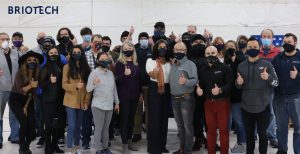
Briotech products use a shelf-stable form of HOCl for use in the home, schools, businesses and more. “In fact, samples of BrioHOCl that are six years old have been tested on dangerous bacteria like Staphylococcus aureus and Klebsiella and found to kill 99.99% of both in less than five minutes,” says Rasmussen. “Briotech’s HOCl also has been independently tested in certified laboratories and found to inactivate 99.994% of the pandemic virus SARS-CoV-2 in two minutes.”
And the world is noticing. Briotech is making a name for itself as “the world’s leader in HOCl production and scientific research,” says Terry, “and we distribute tools for mass manufacturing of nature’s solution across the globe. We have shipped to thousands of cities across America, we have donated to dozens of countries in disaster relief, and we have achieved several scientific breakthroughs here at our factory in Woodinville where we produce HOCl by the ton with the vision to change the realities of global health.”
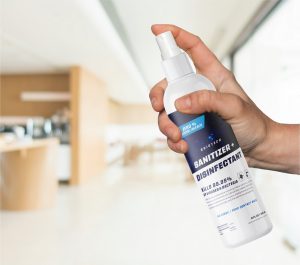
“Antibiotic resistance may force a change in the practice of medicine over the next 30 years,” admits Rasmussen. “Having an antiseptic already available today that’s highly effective, very stable, inexpensive, that does not generate resistance, and that’s benign to human tissue, will be one way to help ensure that our children won’t start dying from simple infections again.”
To learn more about HOCl and Briotech’s activities, visit their Science and News pages, or shop for Briotech products through their website, Amazon or Home Depot. Like the delta variant of COVID-19, changes in medicine often force a pivot in how we treat illness. But that doesn’t mean we forget what we’ve learned up to now. By using the wealth of knowledge at our fingertips, new—safe—solutions can be found.
Sponsored







